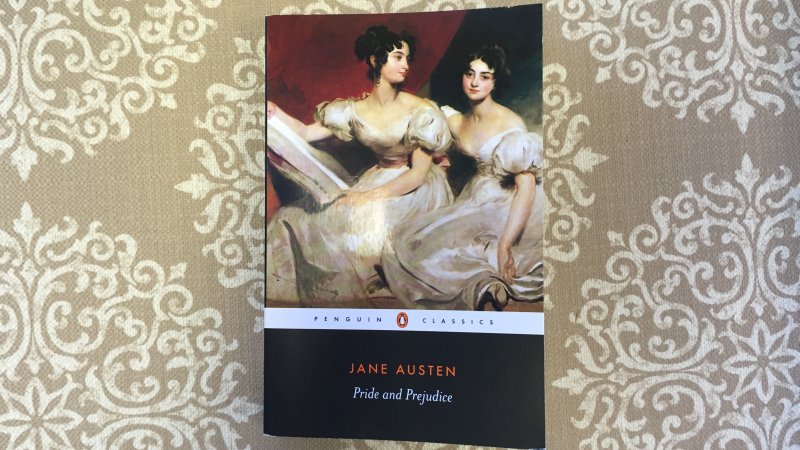Summer Classes: More to Jane Austen than Meets the Eye

Jane Austen was a famous English novelist known primarily for her works such as Persuasion, Emma, Sense and Sensibility, and of course, Pride & Prejudice.
These novels are some of the best of her time, but there is far more to them and Miss Austen than meets the eye. Drawing from her own life, Austen was able to take on some of the cultural giants of her day.
Did you know that...
- It was unusual for an author, particularly a woman, to become famous while alive. In spite of publishing her works anonymously, that is just what Jane Austen did. She became so popular that the Crown Prince asked her to dedicate Emma to him, which she obligingly did, but with typical Austen wit.
- In many of Austen's novels, "miniatures" or "silhouettes" end up playing a subtle but important role in the story. These were the poor man's way of taking a family picture during Austen's day. The Austen family seemed to be particularly fond of these family pictures. One of Austen's cousins became somewhat famous at creating silhouettes and was employed to make one to commemorate the adoption of Edmund to the Knight family. Austen’s fondness for silhouettes can be seen in the careful placement of them in Fanny Price’s quarters in Mansfield Park.
- The character of Mr. Knightly was likely taken from Jane's own uncle, Lord Knight, who was quite wealthy. He and his wife were childless and ended up adopting Jane's oldest brother as their son and heir. Her brother became Lord Edmund Knight. Possibly, because of this we see the theme of adoption come up frequently in Austen’s novels. In Emma, Frank Churchill is adopted and raised by his aunt. Harriet is taken in and raised by Mrs. Goddard, and Jane Fairfax is raised by the Dixons. In Mansfield Park Fanny is adopted by the Bertrams. And, last but not least, in Persuasion Anne is for all practical purposes raised by her wealthy and sensible aunt.
- Jane Austen’s family is sometimes criticized for sending their son, George, to be raised by a “foster” family. His mental illness and seizures made it difficult for him to be cared for by the Austen’s themselves. However, one biographer points out that most families in their situation sent these children to be cared for in an asylum under rather inhuman conditions. The fact that the Austen’s sought out a private couple to care for him actually shows greater care than what was normally given in their day, and is likely due to the influence of the royal family who at that time was caring for the mentally ill King George III. The new respect and kindness shown by the royal family for the now insane King George rapidly began changing the way the mentally ill were treated.
- Jane Austen is often pigeon-holed as a female novelist, but a more careful study of her works reveal her to be a closet philosopher and politician. She took on the battle between the Romanticists and the Empiricists in Sense and Sensibility, showing the deficiencies of both philosophies through the characters of Marianne and Eleanor. She smirks at the Gothic fangirls (yes, series like Twilight were popular even back then) in Northanger Abbey. She gave England answers and hope for how to survive the revolutions in France in her novel Emma (coincidence that the Crown Prince asked that this one be dedicated to him? – we think not). And most stunningly she took on the vapidness of the English pulpit in a less read novel, Mansfield Park. Curiously enough, this novel got its name from the real Lord Mansfield, who was an abolitionist judge. He adopted a black girl as his daughter and heiress. This authoress indeed earned the nickname given to her by a family friend: “inimitable Jane.”
Many Christians recognize the need to interact with their country's problems, but so often we take a short-sighted approach to facing the forces of evil. Austen’s strength as an author and the thing that made her such a lasting force in literature is that she interacted with her culture’s problems by creating believable, three-dimensional characters that were personal and came ultimately from the interesting life God had written for her. He wrote well first, and she wrote well after Him.
By Jennifer Collender.







